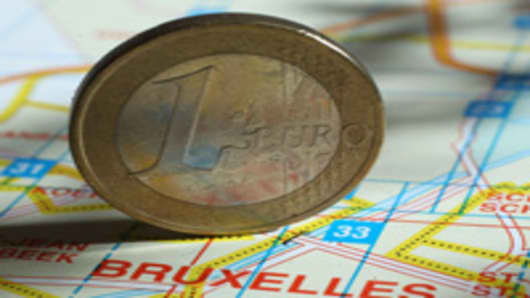A deepening euro zone recession will force the European Central Bank into full-blown quantitative easing within six months, David Owens, Chief European Economist at Jefferies International told CNBC Wednesday.
“We should have had this [QE] already. Within three to six months’ time we’ll be seeing full blown QE out of the ECB (European Central Bank) in particular because the recession will get worse for a period and they’ll justify QE on the macro mandate,” Owens said.
He added that the ECB would end up buying bonds and that the German Bundesbank would be buying Bunds.
In what was widely regarded as a bold move by the ECB President Mario Draghi last week, the ECB outlined plans to buy unlimited amounts of short term debt from troubled countries.
Reuters reported that Joerg Asmussen, a German member of the ECB's executive board, struck a note of caution on Tuesday warning that bond buying would be no substitute for reform within troubled states.
Germany opposed the plan and fears it amounts to illegally financing troubled member states.
To allay German fears about the plan the central bank has said that strict conditions would be attached.
“It will be interesting when we get to the next press conference where the ECB should be framing discussions about hitting the inflation target and once he’s [Mario Draghi] cut rates again and he cannot do anything further there he can move to QE,” he said.
However, the chance of full QE was dismissed by Jonathan Loynes, chief European economist at Capital Economics who told CNBC.com it was unlikely in the short term.
“QE is not certain by any means because the bond buying plan will be sterilized.
The fact that it will be sterilized suggests that they’re not prepared to take that next extra step and it’s not money printing as such,” Loynes said.
Sterlization means that the ECB would take measures to ensure the overall money supply did not increase in the bloc.


